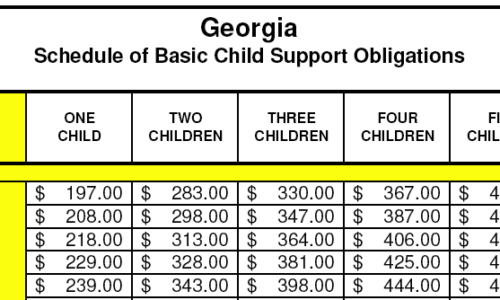Child Custody Laws in Georgia

Child Custody Laws in Georgia
Child Custody Laws in Georgia
This article provides an overview of child custody laws in Georgia. Every divorce has its own unique circumstances. To obtain the most accurate child custody information for your situation you should consult with a child custody lawyer.
Georgia child custody laws are written to be in accordance with the Uniform Child Custody Act (UCCJEA). Georgia child custody laws provide a framework for a fair way for parents, guardians, and grandparents to have involvement in the lives of children affected by divorce.
What Are the Types of Child Custody in Georgia
Joint Custody vs Sole Custody
- Joint custody generally means that both parents have relatively equal decision making rights and spend the same amount of time with their child(ren).
- Sole custody generally means that one parent has full decision making authority, and minor child(ren) have little to no time with the other parent.
Legal Custody and Physical Custody
Georgia recognizes two categories of custody that may be assigned with joint or sole authority:
- Legal Custody refers to the right of a parent or guardian to make major life decisions. Major life decisions include religious upbringing, school choices, etc. Ideally the parents can discuss and agree on major life decisions, however; one parent will be chosen to have the final decision-making authority.
- Physical Custody refers to the decision as to which parent or guardian the child will have as their primary residence.
Can Children Decide With Whom They Want to Live?
In Georgia, children 14 years of age or older are allowed to make their own decision regarding with whom they choose to live. The presiding judge does have the authority to over-rule the minor’s decision. Typically a judge will deny such a request only if the judge perceives that the minor’s decision is not in their own best interests.
Common Things That Cause Custody to Be Changed
There are circumstances which can serve as compelling reasons to change custody. A custodial parent deciding to move out of Georgia is a common cause for changing custody. Other common reasons are determining that children are in an unsafe environment, being neglected or abused.
How Parenting Plans Affect Child Custody
A parenting plan is a formal agreement that defines details of the post-divorce environment. Within the Parenting Plan are the specifics of how critical matters related to raising a child are implemented and managed.
Under Georgia law O.C.G.A. § 19-9-1 a Parenting Plan is a mandatory part of every divorce in Georgia which involves minor children. Where minor children are involved, a final divorce decree will not be issued until the Parenting Plan has been approved by the Court.
A parenting plan is required for permanent custody and modification actions and may be required for temporary hearings. The fundamental principles of a Parenting Plan are:
- A recognition that a close and continuing parent-child relationship and continuity in the child’s life will be in the child’s best interest
- A recognition that the child’s needs will change and grow as the child matures and demonstrate that the parents will make an effort to parent that takes this issue into account so that future modifications to the parenting plan are minimized
- A recognition that a parent with physical custody will make day-to-day decisions and emergency decisions while the child is residing with such parent
- That both parents will have access to all of the child’s records and information, including, but not limited to, education, health, extracurricular activities, and religious communications
A parenting plan shall (at minimum) include:
- Where and when a child will be in each parent’s physical care, designating where the child will spend each day of the year;
- How holidays, birthdays, vacations, school breaks, and other special occasions will be spent with each parent including the time of day that each event will begin and end
- Transportation arrangements including how the child will be exchanged between the parents, the location of the exchange, how the transportation costs will be paid, and any other matter relating to the child spending time with each parent
- Whether supervision will be needed for any parenting time and, if so, the particulars of the supervision
- An allocation of decision-making authority to one or both of the parents with regard to the child’s education, health, extracurricular activities,
and religious upbringing, and if the parents agree the matters should be jointly decided, how to resolve a situation in which the parents disagree on resolution - What, if any, limitations will exist while one parent has physical custody of the child in terms of the other parent contacting the child and the other parent’s right to access education, health, extracurricular activity, and religious information regarding the child.
NOTE: If the parents fail to agree on a Parenting Plan, each party shall file and serve their own proposed Plan on or before the date set by the judge. Failure by one party to respond in time may result in the judge approving the Plan of the responding party.
How to Change Child Custody in Georgia
Child custody arrangements are determined during the divorce process. The terms of child custody can be challenged via a modification process. To file a justified cause for child custody modification there must be proof of a material change of condition which substantially affects the welfare of the child(ren). Even if this is proved a judge may still deny the request to modify all or any part of the existing arrangement.
Modifications When a Parent Moves Out of Georgia
When a parent wants to move to out of Georgia with minor children Georgia law requires the custodial parent to provide the non-custodial parent a written 30-day notice. Georgia law permits the non-custodial parent to file an objection to block relocating the minor child(ren). The Court cannot stop a person from moving, however; the Court can reassign custodial privileges thereby blocking taking the child(ren) to live in another state.
Are There Time Restrictions to File for Modifications?
Filing for modifications does not have a waiting period. In extreme or dire circumstances, custodial assignments can be quickly changed via a Temporary Emergency Order.


